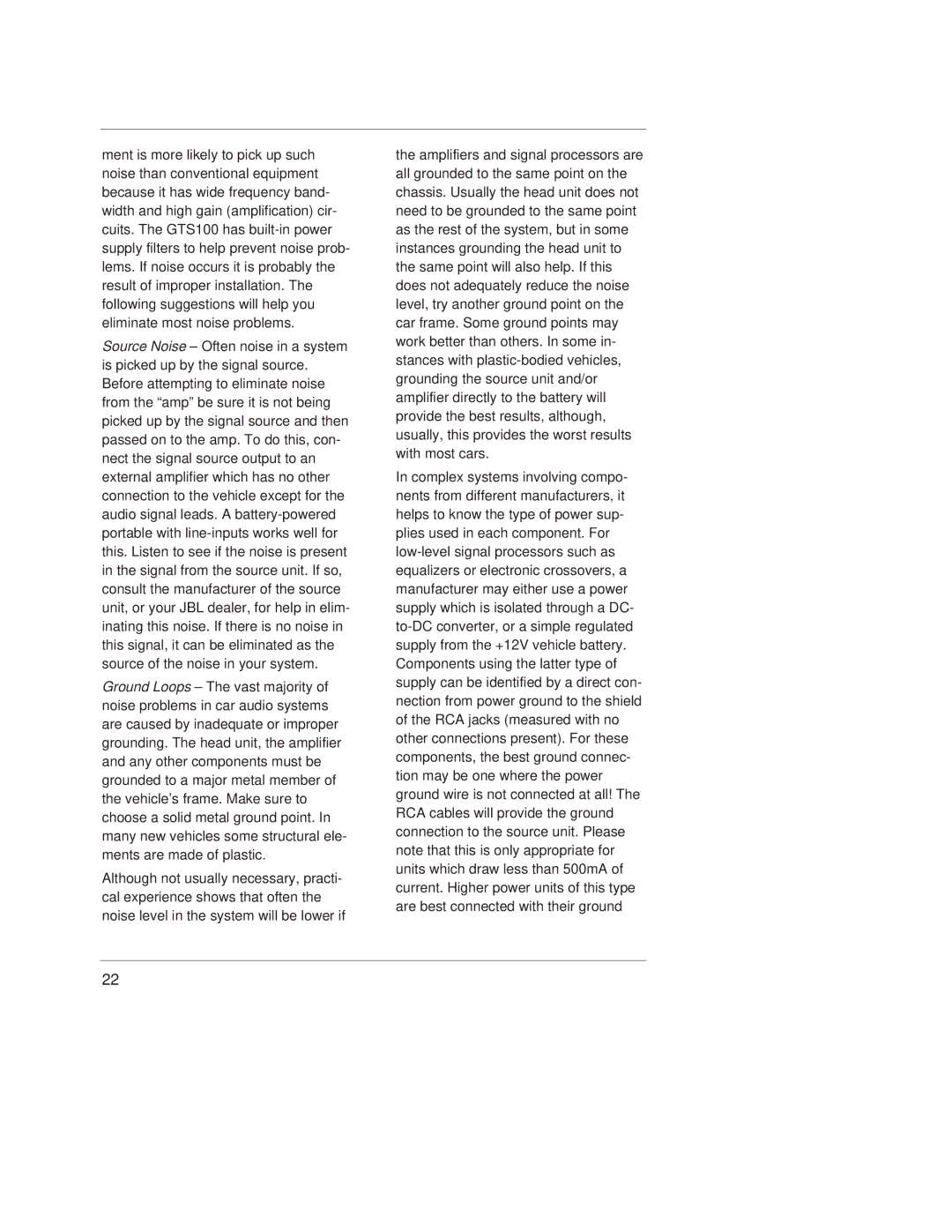
ment is more likely to pick up such noise than conventional equipment because it has wide frequency band- width and high gain (amplification) cir- cuits. The GTS100 has
Source Noise – Often noise in a system is picked up by the signal source. Before attempting to eliminate noise from the “amp” be sure it is not being picked up by the signal source and then passed on to the amp. To do this, con- nect the signal source output to an external amplifier which has no other connection to the vehicle except for the audio signal leads. A
Ground Loops – The vast majority of noise problems in car audio systems are caused by inadequate or improper grounding. The head unit, the amplifier and any other components must be grounded to a major metal member of the vehicle’s frame. Make sure to choose a solid metal ground point. In many new vehicles some structural ele- ments are made of plastic.
Although not usually necessary, practi- cal experience shows that often the noise level in the system will be lower if
the amplifiers and signal processors are all grounded to the same point on the chassis. Usually the head unit does not need to be grounded to the same point as the rest of the system, but in some instances grounding the head unit to the same point will also help. If this does not adequately reduce the noise level, try another ground point on the car frame. Some ground points may work better than others. In some in- stances with
In complex systems involving compo- nents from different manufacturers, it helps to know the type of power sup- plies used in each component. For
22
